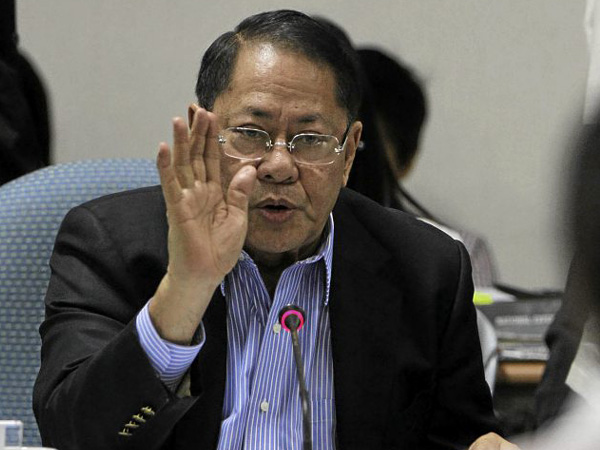Angara Center: Bringing together the world’s brilliant minds
The Philippines is undisputedly rich—in natural resources, in having talented and industrious workforce, and, fairly recently, in liquidity as evidenced by the enormous and still growing deposits in banks.
So why is poverty incidence in the country still significant? Why can’t the country attract enough foreign direct investors?
An arguable answer to those questions, observers say, is that the Philippines tends to focus too much on politics and less on economics.
Academics and economists say Filipinos should talk about, and work on, development more often. If enough attention is placed on the goal of achieving economic prosperity for majority of the population, they say, bottlenecks preventing faster and equitable growth of the economy would be squarely addressed.
This is exactly what the newly established Angara Center for Law and Economics is all about—pushing Filipinos to talk about economic development and appropriate laws to support it. The research institution does so by bringing together brilliant minds both from within and outside the country to conduct in-depth studies on and hold public discussions of issues concerning progress (or the lack of it).
The Angara Center, which was launched in August, aims to hold conferences where economists from various parts of the world may be invited to speak. They may also contribute research works involving public policies and economic development.
According to economist John Nye, executive director of the Angara Center, the institution will also help the Philippines engage in global academic discussions and constructive debates on pressing issues affecting the economy.
“The more we integrate into the world debates, the more we benefit in terms of gaining more knowledge and more interest of people elsewhere in the world in the Philippines,” Nye, an economist from George Mason University in Washington, D.C., tells SundayBiz.
He said the Angara Center shall be a venue for sharing of information that could be helpful in addressing problems dragging the country’s growth prospects.
The Angara Center is named as such because it is co-headed by Senator Edgardo Angara.
Nye said Angara takes the lead in soliciting funding and other kinds of support from the private sector for the operation of the institution. Nye, a Filipino who grew up in Marikina City before flying to the United States for his college education, spearheads efforts in inviting local and foreign economists to contribute research works and to speak in public conferences that the institution organizes.
“On one hand, Senator Angara had been looking for a vehicle through which sound advice [on development issues] shall be given to policymakers. On the other, I had been looking for a vehicle through which research can be promoted in the Philippines,” Nye says.
“The senator and I agreed that the country will be better off having public policies supported by rigorous research and analysis,” he adds.
Nye, who has written several socio-economic articles for international publications and who is research director at the Higher School of Economics in Moscow, said the Angara Center plans to hold three to four forums every year where experts will present their research and where pressing developmental issues shall be discussed.
A team of Filipino economists, including Gerardo Sicat and Raul Fabella, among others, was formed to compose the Angara Center’s board of advisers.
Nye says the Angara Center will not take any position on any issue. Instead, he says, the institution will simply gather research works contributed by experts, who shall be allowed to present their own research-backed opinions. It is possible for two contributors to have opposing opinions on the same issue, he says. What’s important for the Angara Center is to put to public discussion, for purposes of forming appropriate public policies, topics that are vital for the economy, he adds.
Nye also says the Angara Center shall also extend grants to locals who may want to contribute research works and who need funds to do so.
In its very first conference held on August 3 at the Hotel Sofitel in Pasay City, the Angara Center had various foreign economists as speakers and reactors to the topic, “Globalization, Innovation, and Economic Growth.”
In the conference, the guests urged policymakers in the Philippines to grab the chance for the country to become a tiger economy. They said the country’s favorable macroeconomic fundamentals—from benign inflation, robust growth, manageable government debt, to significant foreign exchange reserves—must be backed with efforts to address long-standing bottlenecks to sustainable and equitable growth. These constraints, which adversely affect the ability to attract foreign investors, include laws restricting foreign ownership and lack of policies supportive of growth of the industrial sector.
One of guest speakers was Dr. Tyler Cowen, a general director at George Mason University who authored various books. His latest was titled “The Great Stagnation: How America Ate All the Low-Hanging Fruit, Got Sick, and Will (Eventually) Feel Better.”
Nye says Angara Center will bring more international experts to the Philippines for its succeeding conferences. He also expressed confidence that the institution will prompt Filipinos to focus more on the vital issue of development.
“The Angara Center will increase the ties the Philippines has to the world academic market; it will improve the standing and reputation of Filipino thinkers and integrate economic concerns of the Philippines to the world,” Nye says.

